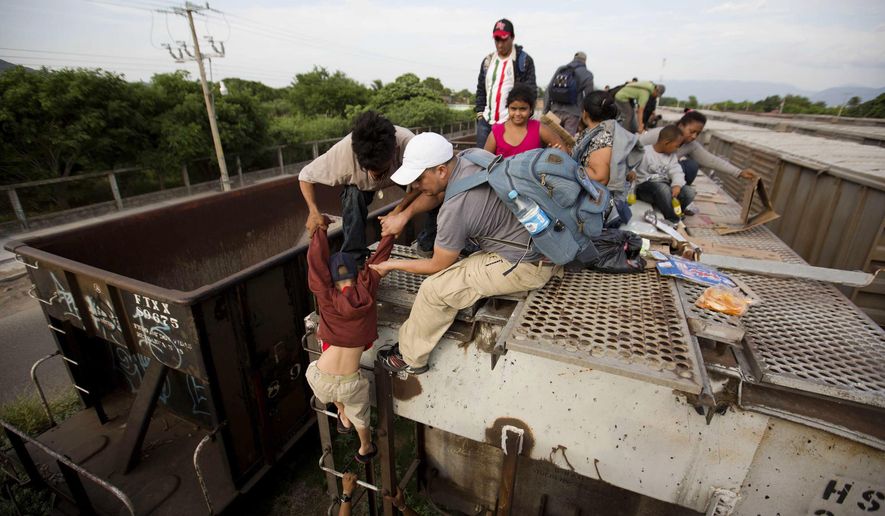The federal government loses track of nearly 20 percent of the illegal immigrant children it is supposed to be monitoring after being released to family or other sponsors, health officials admitted to Congress Thursday, leaving those children vulnerable to exploitation and difficult to track down when the time comes for them to be deported.
Unaccompanied Alien Children — those who arrive at the U.S. border without their parents — are among the most vulnerable populations of immigrants, with some having been used as slave labor and others providing a pipeline of recruits for immigrant-heavy gangs.
Health and Human Services, the federal agency tasked with caring for the UAC after they arrive, and connecting them with sponsors, has made improvements but still struggles to keep track of them once they’re turned over to relatives or foster families.
Steven Wagner, an acting assistant secretary at HHS, said of 7,635 UAC the department tried to check in with last year after their first 30 days with their new sponsors, they found 28 had run away and 52 had ditched their sponsors to move in with someone else.
More striking, though, were the 1,475 UAC who the department “was unable to determine with certainty the whereabouts of” just 30 days after they’d been placed in those homes.
And just three of the original 7,635 UAC were actually deported — a rate of 0.04 percent.
Sen. Rob Portman, an Ohio Republican and chairman of the Senate’s Permanent Subcommittee on Investigations, said the numbers of children lost track of were unacceptable.
“These kids, regardless of their immigration status, deserve to be treated with dignity and respect, not abused or trafficked,” he said in prepared remarks for a hearing Thursday to examine the issue.
UAC first surged across the border under the Obama administration and are surging once again under President Trump, have been perhaps the trickiest part of the illegal immigrant problem to solve.
The initial surge was so overwhelming that the government was cutting corners in placing the children with sponsors, such as not finishing background checks, leading to shocking abuses. In one instance HHS placed children with human traffickers who pushed them into forced labor on an Ohio egg farm.
UAC have swamped some school systems, stretching budgets to deal with language challenges, and police say the children seem to be targeted by gangs such as MS-13 for recruiting. A recent anti-gang operation in New York found more than 20 percent of those arrested had entered the U.S. as UAC.
Government policy toward UAC is disjointed at best.
Those from Mexico can be quickly deported, but those from non-contiguous countries must be quickly processed by Homeland Security and then turned over to HHS, which holds them in government-run dorms until sponsors can be found.
Once with sponsors, HHS says its role ends — but Mr. Portman and others in Congress say that’s not good enough. They are urging the government to take a more active role.
Mr. Wagner said that would take changes to the law and a massive infusion of resources.
Border Patrol agents and government documents detail myriad instances of adults claiming to be UAC, hoping to gain quick, easy access to the interior of the U.S.
Earlier this month the Border Patrol in Arizona caught an admitted MS-13 gang member who is 18 years of age, but who had attempted to portray himself as a UAC, hoping to abuse the system to get quick passage to Los Angeles.
• Stephen Dinan can be reached at sdinan@washingtontimes.com.




Please read our comment policy before commenting.